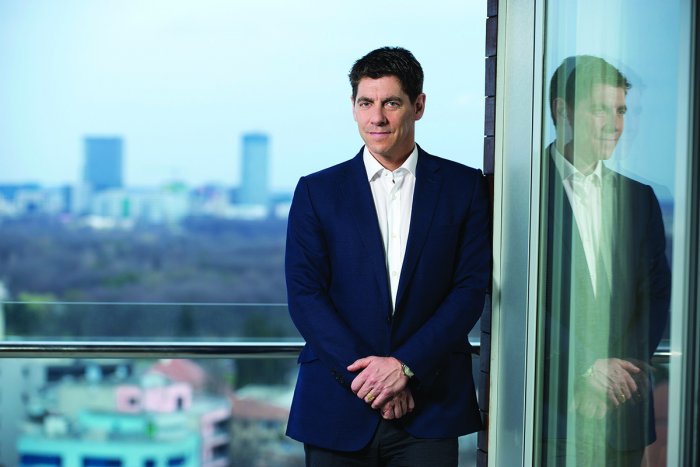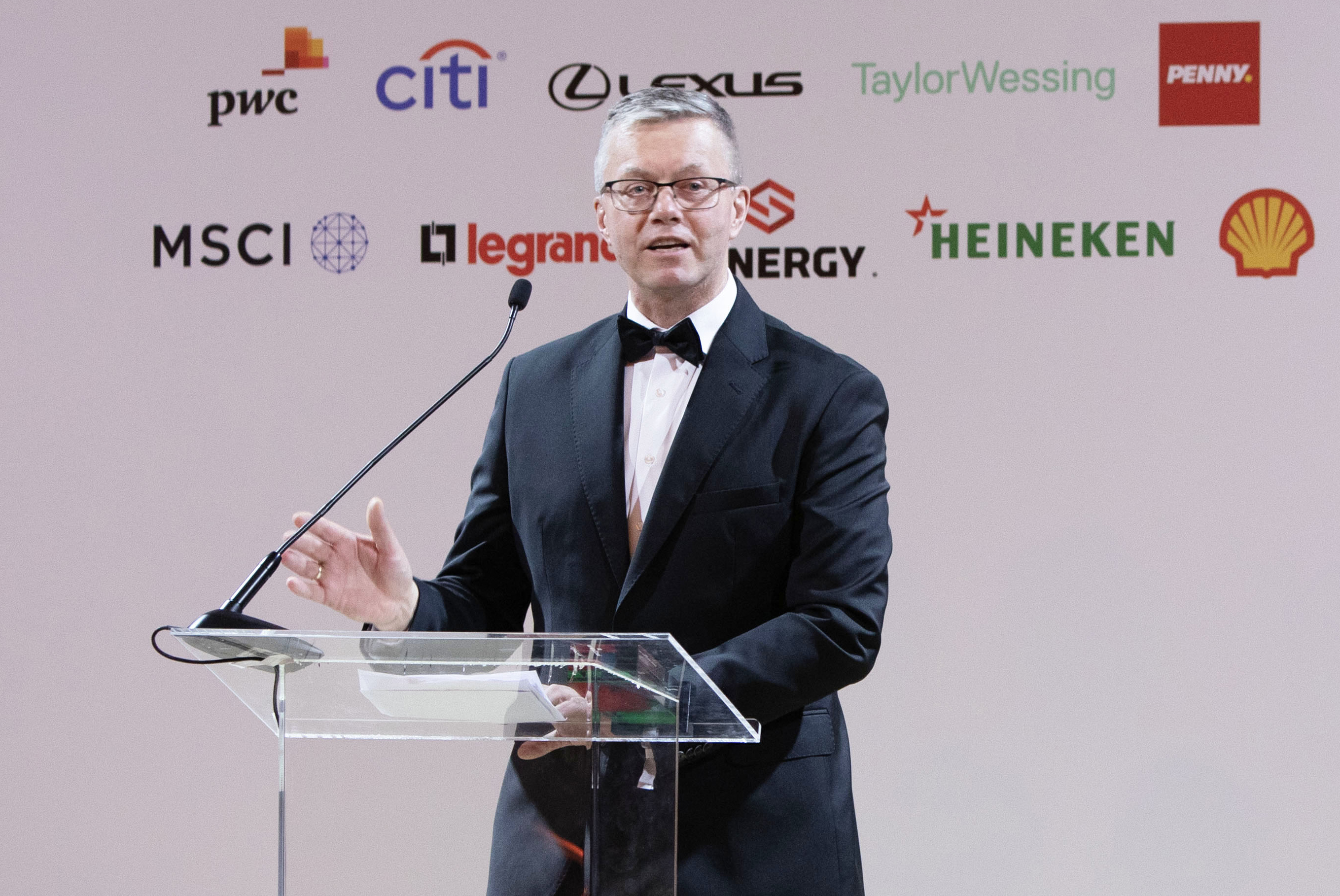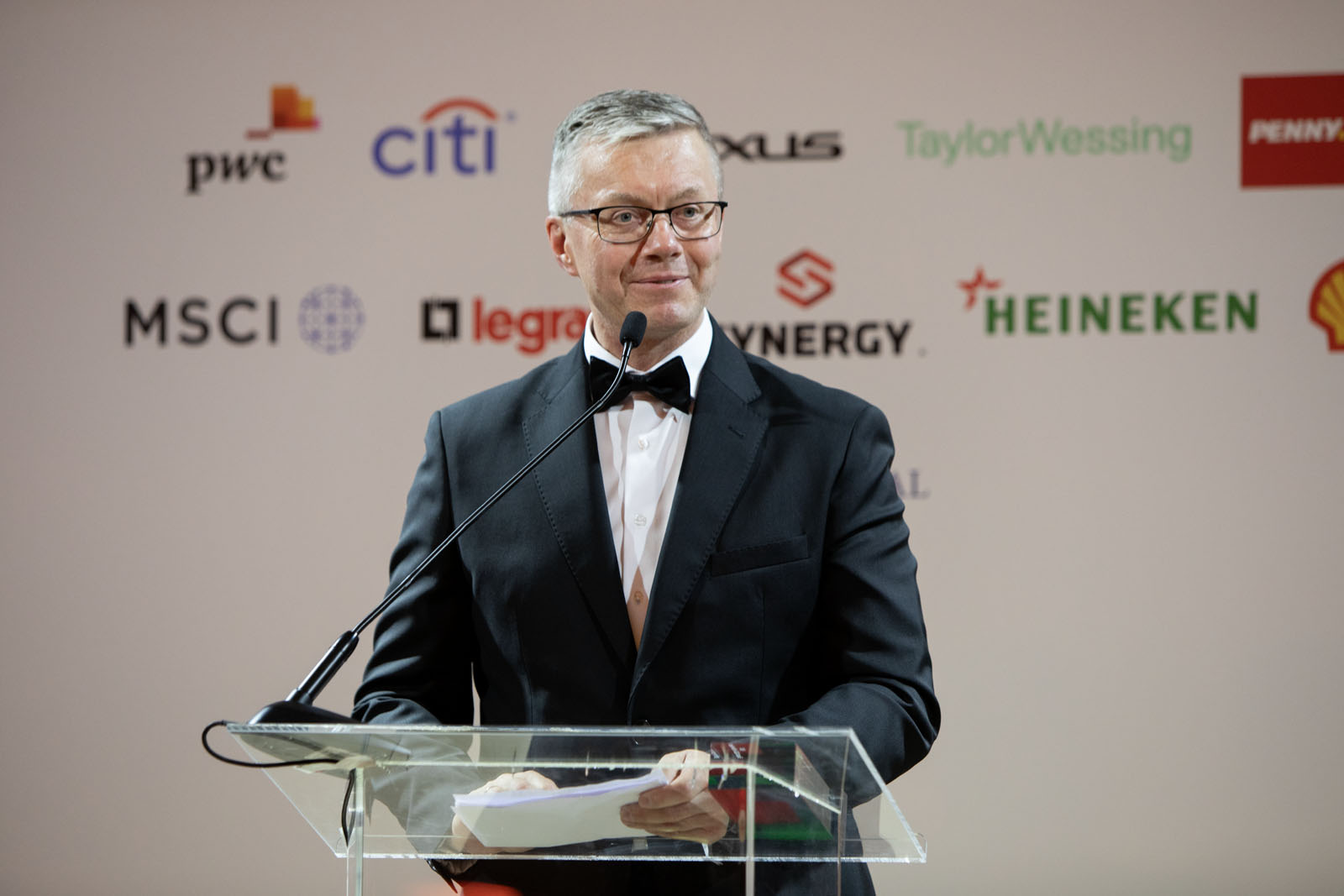Cutting through the data clutter

With more than 20 years’ experience working across Southeastern Europe, including many years representing Saatchi & Saatchi, Radu Florescu was a pioneer of the Romanian advertising industry. Born in the United States, but with family roots in France, Romania and Hungary, he founded the Centrade Group in 1992. In January of this year Centrade and Cheil Worldwide Inc. announced a partnership covering the region. In April they opened their Budapest office. On Thanksgiving Day, Florescu sat down in New York for a skype chat with editor-in-chief Robin Marshall to review progress.
Radu Florescu, founder of Centrade Group.
How has the first year of the strategic partnership between Centrade and Cheil mapped out?
A: A lot can be said about being smart or being lucky. I probably consider myself to be more of the latter, and we are certainly in the right place at the right time. Romania, especially, has one of the best growth rates in Europe, if not the best. I am also very pleased with the results from Serbia and Croatia, Slovenia and the smaller [former Yugoslavia] markets we serve through them. We are profitable after one year of operations, which I think really says a lot about the people working with us. I am very happy about the results to date, and very bullish about 2017.
How did the relationship with Cheil come about in the first place?
A: Cheil Worldwide’s HQ is based in South Korea. They have a strong worldwide presence where Samsung operates and Samsung is present in most East European markets [Albania, Bosnia & Herzegovina, Croatia, Hungary, Slovenia, Macedonia, Montenegro, Romania and Serbia]. Cheil did not want to start from the ground up; it had limited experience in these markets and was conscience that Eastern Europe can be difficult to operate in. We have been operating in Southeastern Europe for 25 years. It seemed like a perfect match up.
How does the partnership work in practice?
A: I feel we are very much part of the Cheil family. I have a lot of confidence in the European management; they are very switched on and have an aggressive and ambitious agenda, and I share those ambitions. You know, two or three percent growth is not “growth” to me; that is not what I would describe as good business. Too much emphasis today is put on cutting or maintaining costs. The advertising business, for all the talk about technology, is still really about putting out good ideas. Content is still king. If you don’t have good content, whatever you are doing, it is just rubbish, worthless.
Why move into the Hungarian market now?
A: Three reasons. Firstly, I thought it was a great opportunity for Cheil. Some people think of them as a one-client company; they are not, but they are present in all markets where Samsung is, and Samsung has a sizable operation in Hungary.
Secondly, it is strategic. Hungary, arguably, is a more advanced market than Romania, and that presents great opportunities. I’m looking at Hungary as a regional opportunity and always ask the question: what can we leverage from the resources and experience that can work locally? People don’t see it as such a different market anymore.
Thirdly, I am interested in Hungary, and always was. I think Budapest is an absolutely beautiful city; you get that real sense of old empire when you walk the streets, which I really enjoy. Given the family connections, I was always interested in both Romania and Hungary.
How big is the team in Budapest?
A: Seven people, but we are looking to add to the team in 2017. It depends on the amount of work, but I am always keen to invest, so we will be looking to add three people in the near future. The key, of course, is getting good people, and I was super impressed when I held my initial interviews; the talent we discovered was very impressive. And I can’t say this enough: Viktória [Buday, business manager for Hungary] is truly impressive.
What are your goals for Hungary?
A: Regionally, in the last three years things have been going well, but that is exactly the time when you have to think of changing how you operate. In Hungary, we are still at the beginning, there are still a lot of adjustments to be made, things that we can do better. We have a management meeting every Monday and one of the things I am always asking is what can we eliminate to free up time and become more efficient?
In the next two years we want to be an agency known for its outstanding content. We are not there yet, but that is where we want to be. To get there will require a lot of little steps, but we know what we need to do. In Budapest we are somewhat known on the market. The next step is we want to be better known, and known for doing something good. And after that we want to be known for doing something that clients care about, because, ultimately, that is when you are doing really well. Achieving that in two years is ambitious but doable; it depends on having the right people.
What would you say is the signature approach of your company?
A: I probably overuse the word, but it is about being pragmatic, leveraging what we do in one country to apply in another for the benefit of our clients. I am a big believer in cross-fertilization; our strength is our diversity. We have just developed an idea of Viktória’s in Romania, not Hungary. Viktória is a great project manager, so if I need her to oversee something in Romania, I’ll use her. We don’t necessarily need to have entire creative teams in each country. Our regional platform allows us to bring in talent where it is needed. That could be a designer from Zagreb or Bucharest to work on a project in Hungary. At its core, our job is about having great ideas, and great ideas should not be held in by borders; they should transcend them.
What are the particular challenges of working in this region? Are you able to replicate messages or campaigns across all the markets you cover, or does each country require a tailored approach?
A: I don’t pretend to be a great expert on the Hungarian market, but it seems to me that it is similar to other countries of Europe. There is no great marketing divide between Eastern and Western Europe anymore – that has almost all gone now. Mainly the approach is the same, but importantly there remains significant growth left in some markets, including Hungary.
You have to be conscious of the consumer, what is trending, what are they looking at. There are templates that are international, where we have actual results that prove they can be very effective. Some examples of international template use local celebrities, and we tweak things here and there for each market. No two countries are completely the same, but nor are they completely different.
What do you think the upcoming technical trends will be for the region and for Hungary?
A: There’s a lot of talk about technology, but it is just a medium, like any other. Our challenge is to look at the world today and interpret consumers. People have never had as much information at their fingertips as they do now; it is thrown at them all the time via TV, screens, mobile phones, laptop, etc. Making a choice is becoming so much harder; people have no chance to sit back and reflect. So the challenge is how do you get to consumers? You have to cut through the clutter of data. The media landscape is much more complicated and there are increasing challenges creeping up everyday. But in 2017 will those challenges be the same as they were in 2016? Probably not. I suppose that our marketing strategy lifecycle has the expectancy of the lifecycle of a mobile battery. Short lived and looking to improve every round.
Hungary was a leading market in the 1990s. It has slowed relatively speaking somewhat since then, but there is potential for a renaissance. It is always good to shake things up, and my intention for the group is to do exactly that. I am very proud of our connections with Samsung; it is an extraordinary company to work with, has world-class ideas, is adept of using technology, of course. Can we leverage this to expand the opportunities in Budapest? I think we can.
SUPPORT THE BUDAPEST BUSINESS JOURNAL
Producing journalism that is worthy of the name is a costly business. For 27 years, the publishers, editors and reporters of the Budapest Business Journal have striven to bring you business news that works, information that you can trust, that is factual, accurate and presented without fear or favor.
Newspaper organizations across the globe have struggled to find a business model that allows them to continue to excel, without compromising their ability to perform. Most recently, some have experimented with the idea of involving their most important stakeholders, their readers.
We would like to offer that same opportunity to our readers. We would like to invite you to help us deliver the quality business journalism you require. Hit our Support the BBJ button and you can choose the how much and how often you send us your contributions.







